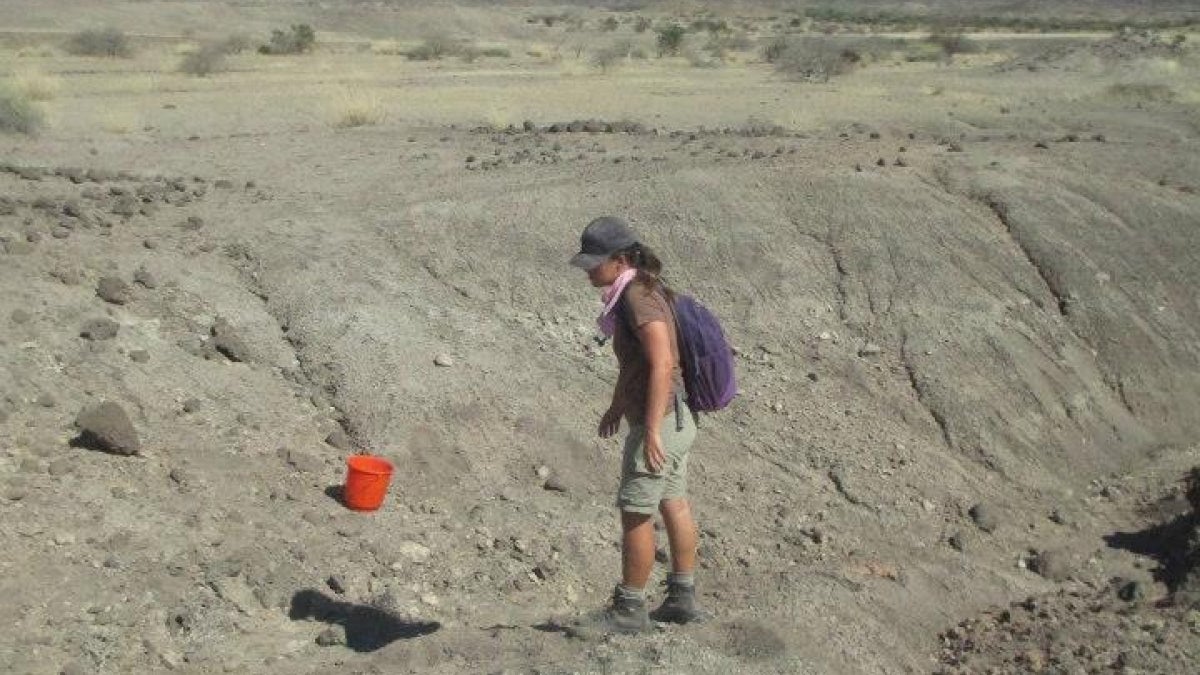Student works with top scholars in anthropology

Faye McGechie is one of many Arizona State University undergraduate students engaged in research projects under the direct guidance of top-level faculty. In this case, she has Institute of Human Origins director and paleoanthropologist William Kimbel showing her the ropes.
McGechie, who is a junior in anthropology, is already well under way in building a solid foundation in field and lab work.
Last fall, she spent six weeks in Ethiopia as part of the ASU Hadar field school led by Kimbel. Working with world-renowned anthropology faculty from ASU – as well as students, Afar locals and Australian and Israeli researchers – she surveyed the desert land for fossilized bone. The work was part of a project investigating the age and origin of bones modified by stone tools.
McGechie calls doing field work at the discovery site of the famed 3.18-million-year-old skeleton “Lucy” a dream come true.
She says she's also pretty blown away by her opportunities at the Tempe campus to work with and learn from some of the top names in anthropology, including Kimbel, who specializes in hominid evolution in Africa.
Currently, she is engaged in a research project with evolutionary anthropology doctoral student Halszka Glowacka. McGechie is measuring more than 250 dental specimens for variation in features of the third molar, to determine if more than one species of pliopithecoid could be represented at the fossil site of Rudabánya. Kimbel is the endeavor’s primary supervisor.
In addition, McGechie recently worked as an intern in the Archaeological Chemistry Laboratory in the School of Human Evolution and Social Change in the College of Liberal Arts and Sciences. She is now interning as the Institute of Human Origins’ student worker.
McGechie is also pursuing original research with fellow anthropology major Lawrence Fatica, looking at the morphology of the elbow in various hominoids to see if climbing behavior can affect the joint’s appearance. McGechie and Fatica are in the process of securing funding for the project. Kimbel is acting as advisor.
“He is a fantastic resource,” McGechie explains. “He is always willing to listen to us when we come to him with our specific project laid out. He understands the hard work we have put into our projects and helps make them a reality.”
Though McGechie is still formulating her honors thesis, she says that Kimbel will definitely be on her committee and instrumental in shaping her work.
As if her research efforts weren’t enough to keep her busy, McGechie also holds office as vice president of the Barrett Leadership and Service Team and the Undergraduate Anthropology Association.
She plans to continue on to graduate school in anthropology, followed by a career in the field.